
Mathis James Reed was an American blues musician and songwriter. His particular style of electric blues was popular with a wide variety of audiences. Reed's songs such as "Honest I Do" (1957), "Baby What You Want Me to Do" (1960), "Big Boss Man" (1961), and "Bright Lights, Big City" (1961) appeared on both Billboard magazine's R&B and Hot 100 singles charts.

"Uptight (Everything's Alright)" is a song recorded by American singer-songwriter Stevie Wonder for the Tamla (Motown) label. One of his most popular early singles, "Uptight (Everything's Alright)" was the first hit single that Wonder himself co-wrote.

"I Say a Little Prayer" is a song written by Burt Bacharach and Hal David for Dionne Warwick, originally peaking at number four on the U.S. Billboard Hot 100 pop singles chart in December 1967. On the R&B Singles chart it peaked at number eight.
"If We Make It Through December" is a song written and recorded by American country music singer Merle Haggard and the Strangers. It was released in October 1973 as the lead single from the album Merle Haggard's Christmas Present, and was the title track on a non-Christmas album four months later. In the years since its release, "If We Make It Through December" — which, in addition to its Christmas motif, also uses themes of unemployment and loneliness — has become one of the trademark songs of Haggard's career.

"A Place in the Sun" is a 1966 soul single by American and Motown musician Stevie Wonder. Written by Ronald Miller and Bryan Wells, it was one of Wonder's first songs to contain social commentary. "A Place in the Sun" was his third Top Ten hit since 1963, hitting number 9 on the Billboard pop singles chart and number 3 on the R&B charts. Billboard described the song as a "folk-oriented release" to which Wonder gives an "exciting treatment." The Originals and The Andantes sang background vocals on the recording. Stevie Wonder also recorded a version of the song in Italian titled "Il Sole è di Tutti".
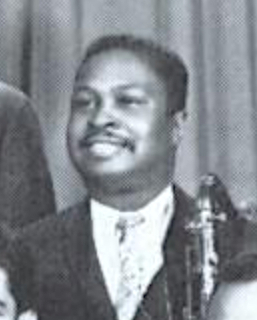
Henry R. Cosby was an American songwriter, arranger, record producer and musician who worked for Motown Records from its formative years. Along with Sylvia Moy, Cosby was a key collaborator with Stevie Wonder from 1963 to 1970. Cosby co-wrote and/or co-produced three No. 1 US hits: Stevie Wonder's "Fingertips" (1963), The Supremes' "Love Child" (1968), and The Miracles' "The Tears of a Clown" (1968).
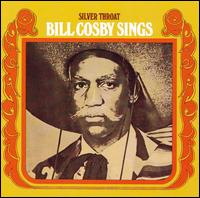
Silver Throat: Bill Cosby Sings (1967) is the sixth album by Bill Cosby.
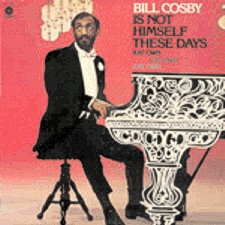
Bill Cosby Is Not Himself These Days - Rat Own, Rat Own, Rat Own (1976) is a musical comedy album by Bill Cosby. He parodies various rhythm and blues artists including James Brown and Barry White. The songs were written with producer and keyboardist Stu Gardner. This is also his first album on Capitol Records, his fourth musical album release overall.
"There Goes My Everything" is a popular song written by Dallas Frazier and published in 1965. "There Goes My Everything" is now considered a country music standard, covered by many artists.
"The Love I Saw in You Was Just a Mirage" is a 1967 song recorded by the American R&B group The Miracles on Motown Records' Tamla label. Written by Miracles members Smokey Robinson and Marv Tarplin and produced by Robinson, it is noted for being the first single to bill the group as "Smokey Robinson" & the Miracles, a billing already present on the group's albums by this time. Miracles members Smokey Robinson and Pete Moore were the song's producers.
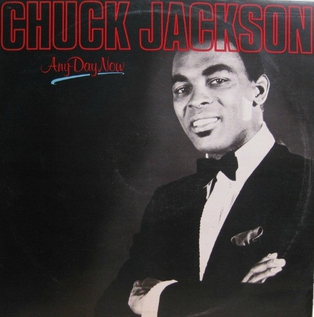
"Any Day Now" is a popular song written by Burt Bacharach and Bob Hilliard in 1962. It has been recorded by numerous artists over the years, including notable versions by Chuck Jackson in 1962, Alan Price in 1965, Elvis Presley in 1969, Scott Walker in 1973 and Ronnie Milsap in 1982. In the lyrics, the singer predicts the imminent demise of a romantic relationship and describes the sadness this will leave.
"Little Walter" is the debut single by Tony! Toni! Toné!. It was the lead single from the R&B group's debut album Who.
"Funny How Time Slips Away" is a song written by Willie Nelson and first recorded by country singer Billy Walker. Walker's version was issued as a single by Columbia Records in June 1961 and peaked at number 23 on the Hot C&W Sides chart. The song has been featured in several live action films and television shows, such as in the first episode of the second season of AMC’s Better Call Saul and in the 2020 Netflix drama The Devil All the Time.
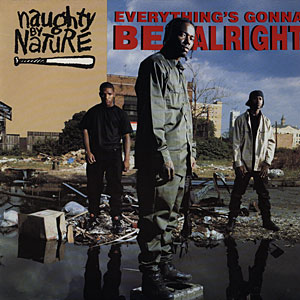
"Everything's Gonna Be Alright" is the second single released in November 1991 from American hip hop group Naughty by Nature's self-titled second album (1991). The song is titled "Ghetto Bastard" on uncensored versions of the eponymous album. While not as successful as their previous single, "O.P.P.", "Everything's Gonna Be Alright" managed to make it to 53 on the Billboard Hot 100 and 9 on the Hot Rap Singles. The song would later appear on both of the group's compilation albums, 1999's Nature's Finest: Naughty by Nature's Greatest Hits and 2003's Greatest Hits: Naughty's Nicest. It was rerecorded for the 2011 release, Anthem Inc.
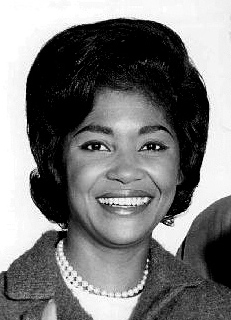
The discography of American singer Nancy Wilson includes over sixty albums, and charted singles. Wilson's musical style spans several genres, blues, jazz, soul, R&B, and pop. She is the recipient of three Grammy awards.
Fred Sledge Smith, often credited as Fred Smith, was an American R&B songwriter and record producer, who worked in particular with The Olympics, Bob & Earl, Bill Cosby, and the Watts 103rd Street Rhythm Band.
James Anthony Carmichael is an American Grammy-winning musician, arranger, and record producer. At first he started off in Los Angeles as an arranger and producer for Motown acts like The Temptations and the Jackson 5. Carmichael went on to attain fame in arranging and producing artists such as the Commodores, Atlantic Starr, Diana Ross and Lionel Richie.
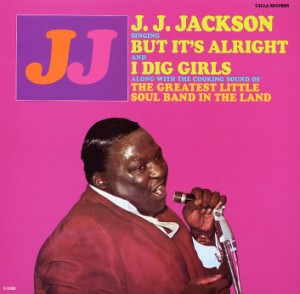
"But It's Alright" is a song co-written by J. J. Jackson and Pierre Tubbs that became a hit on the pop and soul charts in both 1966 and 1969.
William Earl "Bill" Owens was an American country music songwriter. He was the uncle of Dolly Parton. Over the course of his career, he wrote or co-wrote more than 800 songs, including “Put It Off Until Tomorrow," which he co-wrote with Parton. The song won the 1966 BMI Song of the Year award.
American comedian Bill Cosby has released 23 albums of stand-up comedy, 16 studio albums of music, and six singles. He is known mainly for his stand-up comedy, with his first album of comedy Bill Cosby Is a Very Funny Fellow...Right! being released in 1963. He has also recorded several albums of music. Additionally, Cosby has charted six singles on various Billboard charts, including "Little Ole Man ", a number four hit on the Billboard Hot 100 in 1967.









